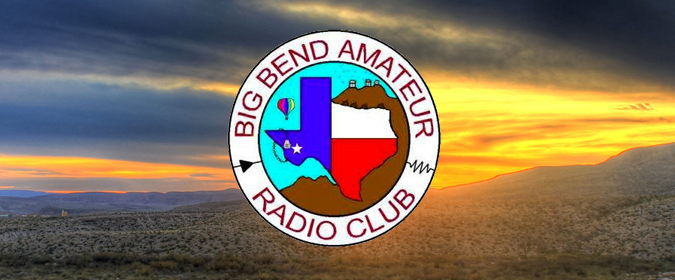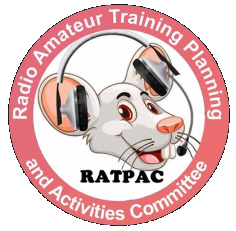Big Bend Amateur Radio Club Supports ULTRA Race 2023
Members of the BBARC provided Communications for the 2023 ULTRA race held in the Big Bend State Park on January 15, 2023.
The annual event hosted three hundred forty foot racers in 10k, 20k, 30k, 50k, and 80k (50 mile) events on trails throughout Big Bend State Park. All races were run concurrently with staggered start times.
We used our permanent 2m repeater system, an additional repeater placed near the park entrance, tactical 2m simplex frequencies and the club RV for Net Control.
Joined by radio operators from San Antonio and Austin, a total of 14 hams manned a base camp and 5 checkpoint stations for the event.
State Park restrictions on vehicles forced some ham operators to hike into their checkpoint locations with all the radio and antenna gear and several had to camp at their station overnight. The Charlie location was 20 miles into the park.
Each racer’s bib number was recorded at each checkpoint and relayed to Net Control to track every runner’s position on the various courses. Ham Operators also provided intel on checkpoint conditions and supply needs. Net Control liaised with Park Officers and Race Control Officials to maintain up to the minute race status for all communications support.
Race officials provided medical teams roving the park on cross country bikes to assist runners through this desert environment. The State Park Officers provided two UTV’s for medical evacuations if needed.
Big Bend ARC participants included Scott KI5ANQ at Delta checkpoint, Lonny K5LON at Bravo checkpoint and Charlie N5CET / Bob WA5ROE in the RV as Net Control.
Yellow Rose Drones captured aerial views of the event and can be seen on youtube.
October 12 BBARC Monthly Meeting American Legion Post Alpine 7:30 pm (doors open 7:00)
CycleFest
by Scott KI5ANQ
The Permian Basin Bicycle Club ran the forty-fourth annual CycleFest the weekend of September 18. Based out of the Prude Ranch, 380 riders headed down highways118 to 17, through Fort Davis, and toward Marfa Saturday morning at 8:00. The BBARC, led by Jim KD5KBU, provided communications support. The radio club has been part of the event for some 30 years, Bob WA5ROE told me Saturday.
The five aid stations were manned by Fort Davis Lions Club members serving food and drinks. Several additional stations had radio operators only. The purpose of the radios is to call for medical help if there is an accident, call for a SAG vehicle when a rider needs assistance, and to track the riders through the course. Jim KD5KBU as net control manned the start/ finish line located at the Prude Ranch. Jim also has the county emergency radios.
The weather was perfect for the riders, and the scenery was lush with vegetation from the wet summer. It has been two years since the event was run, so riders were happy and enthusiastic to tackle their favorite course. Many flowers were out, adding another sensory variety. The mountain scenery is captivating.
The bicyclists streaming out of Fort Davis turn on highway 166. The first three aid stations handle the bulk of the riders before the first big hill. Different ride lengths accommodate all levels of riders. Some turn around at these initial aid stations and head back through town to the ranch.
At the intersection of highways 166 and 118 where I was stationed with Dean W5MHO, the 75-mile route makes its turn back toward the ranch. We make sure no rider heads to Van Horn! Dean says they would be none too happy. Without any food or drinks at our station, no bicycles stop and we simply get a thumbs up as they prepare for the next big climb.
Some family members track their rider by vehicle. The family support vehicles do stop at our station and wait. They play a game called “Is That My Rider?” Despite the color assortments riders wear, identifying a specific rider is not easy.
The riders do not have identification numbers, so we do not have to track individual riders. Tracking ID numbers is a great deal of work for communications. On this event, we count number of riders and carefully track the last riders. As all riders clear a station, the race director releases that team. The radio team drives forward along the route counting riders and asking for assistance. At the next station, the team stops to count the riders coming in. The next station for us was Fischer Hill manned by Bob WA5ROE and Rachael KI5JTB.
After the last riders arrived at Fischer Hill, we drove on to Charlie’s Bistro crowded with riders, bicycles on the ground, a giant shade tree, and food everywhere. This was the last full service stop before the raison d’etre, the massive downhill from Mount Locke. Charlie N5CET manned the radio here. “We got everything here and all the riders stop.”
The last station is Indian Hill, a pull out for Lonny KG5ZHT to set up some shade and watch the bicycles sail by. “The first two were still pedaling hard,” Lonny said.
Eventually, all riders and BBARC members return to the Prude Ranch for hamburgers, raffle drawing, and live music. I said hello to my friend Neal Trammel of Alpine performing with an acoustic group of four.
The race was a success as there were no accidents. Many thanks to the BBARC members that worked the event. The BBARC crews at the first stations include Cheryl KM4TYV, Marvin KG5LMG, Rob KE5KNQ, Bill K5WSA, Stephen KE5WCP, and Pamela KG5ZIC.
The next day, only Jim KD5KBU and Bill K5WSA were needed to monitor the event. The Sunday morning race is up the hill to the observatory and then back down to the ranch. Another good report from Jim of no accidents.
Feels good to work events with radio again! Several club members experienced their first CycleFest and look forward to next year.
The BBARC volunteers’ next event is the MLK weekend in January.
Big Bend Emergency Net for Forty-Four Years
The first BBEN was September 18, 1977 and had 4 checkins: Bob WA5ROE (net control), Dave N5DO, Jim NV5S, and WA5QZT (SK). The BBEN is still run by Bob WA5ROE and Billy W5NPR with 144 participants on the roll call sheet. The BBEN is each Sunday morning at 8:15, but lots of traffic before that. Frequency is 3922 kHz in the 80m band. In the summer, the sun rising early can shutdown the band before the round table finishes, a big reason for the traffic before the net. The 2m repeaters and EchoLink are also used for checkins as some operators are out of the area or propagation (or HF rig) is not working in their favor.











 Total views : 3212756
Total views : 3212756